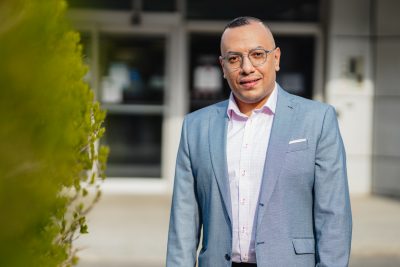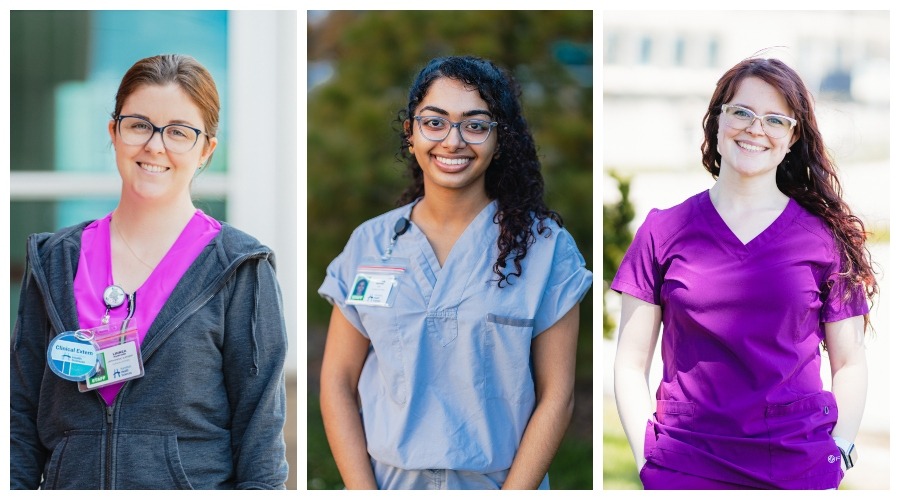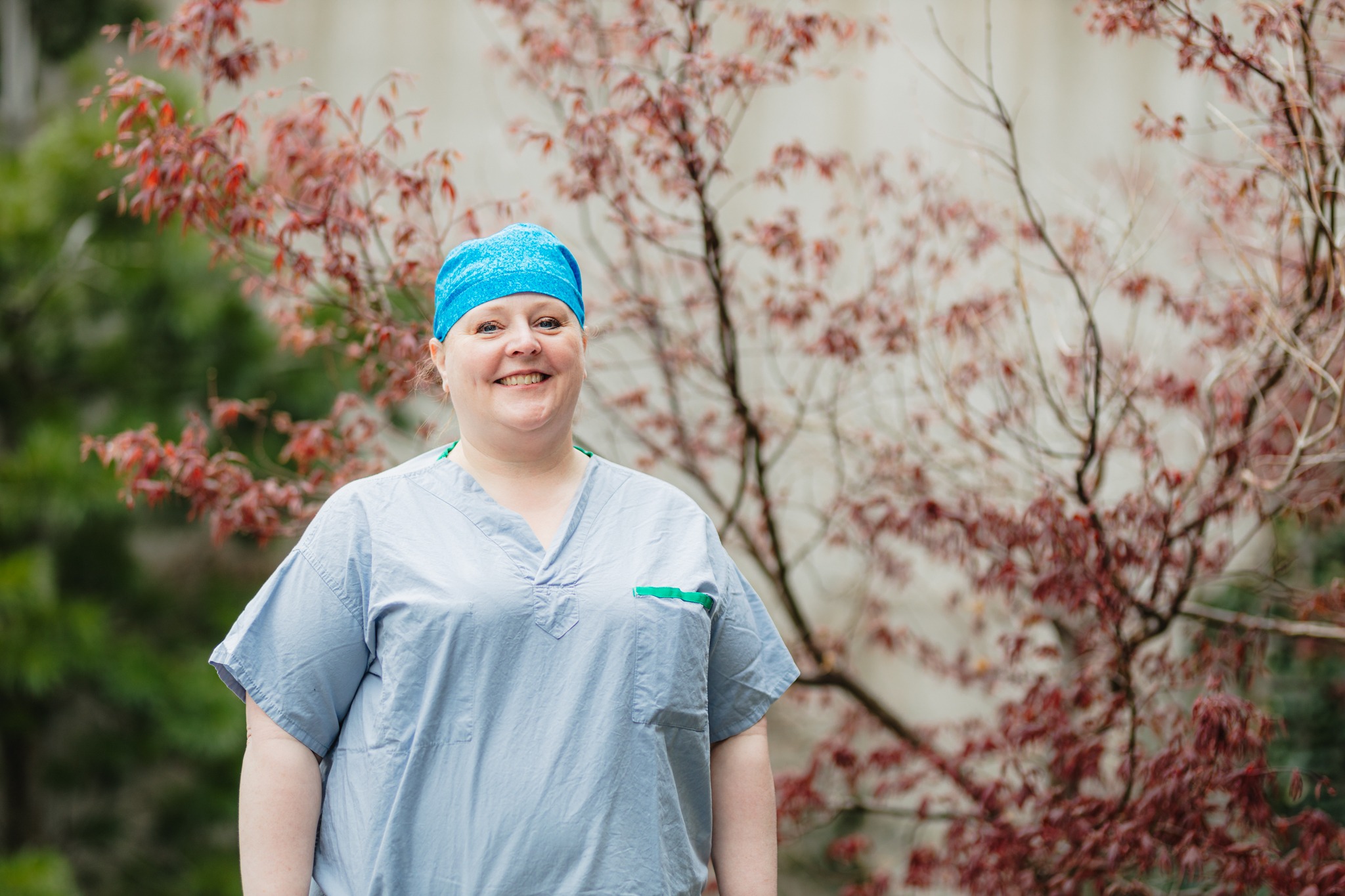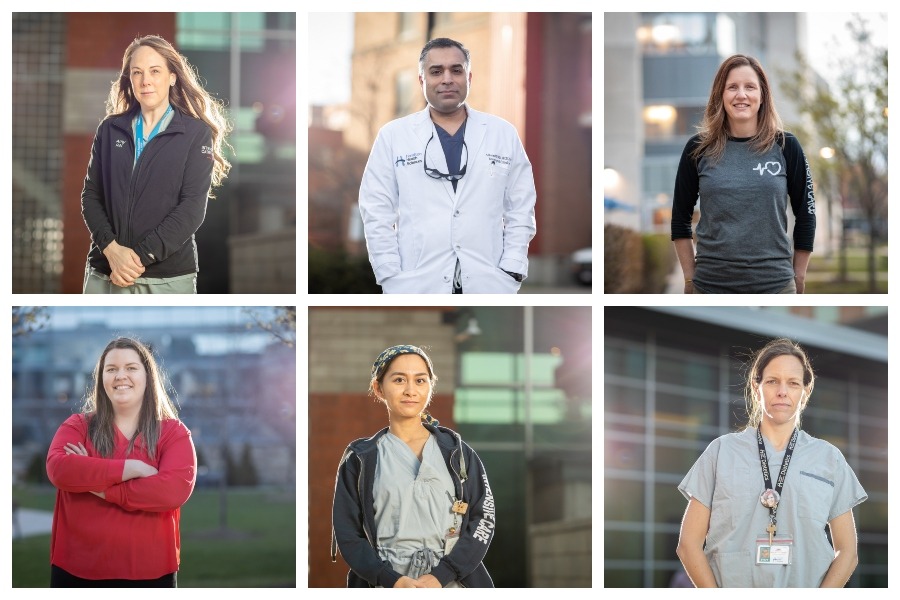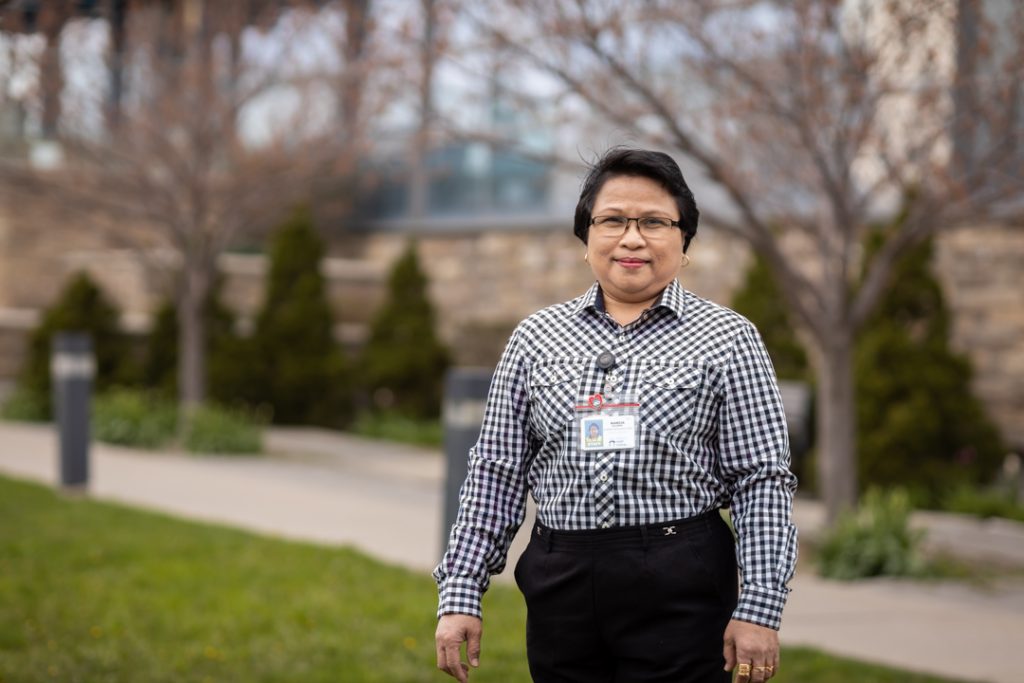
“Anything I do is from my heart” Health care aides essential to patient care
Personal support workers play an important role in patient and family care. They work in hospital, community, and home settings to provide bedside and personal care to those who need it.
At Hamilton Health Sciences and many other hospitals, these staff are called “health care aides” (HCA). HCAs are part of the HHS Nursing/Clinical Resource Team, which means they float between hospitals and units to where they are needed, instead of working in the same place each day.
HCAs assist patients with daily living activities such as bathing and personal hygiene care, dressing, eating, and moving around. They also provide companionship and support for patients and their families through illness and recovery.
“They also spend one-on-one time with patients at risk for falls, self-harm or wandering away from the unit,” says Kimberley Iacchetta, clinical manager of the team. “plus they assist workers with physical restrictions to work safely without further injury. Quite often you will even find HCAs filling a nursing gap on a unit when an area is short staffed and in need of extra helping hands.”
May 19 is designated Personal Support Worker Day. More than one year into the COVID-19 pandemic, it’s more important than ever to recognize their outstanding contributions.
We spoke with two HCAs making a difference at HHS.
Patients come first
“Anything I do is from my heart,” says health care aide Mohannad Abusamhadaneh.
Abusamhadaneh is an internationally educated nurse who came to Canada three years ago from Jordan. He has been working as a HCA across HHS while pursing further education in nursing and obtaining his Masters degree in digital health at McMaster University.
Back home, Abusamhadaneh was an intensive care nurse for adults and children.
“I love caring about people and helping them. I treat them 100 percent like they are my parents,” he says. “We need to help these people to have a good quality of life.”
He says the key to the job is to be flexible and understanding to a patient’s needs, build trust, and have an open mind.
“Patients come first,” he says, “no matter how stressful your work is.”
“When I hear appreciation of what we are doing – ‘thank you so much. You’re such a good man’ – it makes my day. I enjoy most when I see the patients smile.”
At this time, Abusamhadaneh is working in HHS’ vaccine clinic, helping with vaccinations, registrations, check-out, and training.
Showing empathy
Marcianita Ellurig joined HHS in 2004 after coming to Canada a few years prior. Previously, she was working as a midwife in the Philippines and Libya.
She says she remains respectful and empathetic to the patients she is caring for.
While some shifts at HHS can be challenging or scary – especially during her previous assignment in Hamilton General Hospital’s COVID unit — she enjoys her job as a HCA.
“I meet different kinds of people,” she says.
Unwavering compassionate care
HCAs like Abusamhadaneh and Ellurig play an integral role in supporting patients, visitors and staff.
No matter what their assignment is for the day, HCAs keep in constant communication with nursing staff to ensure patient care plans are followed. They quickly alert the team of any changes to a patient’s status, and they participate in daily huddles with the healthcare team.
“Although the job of a HCA can be physically taxing at times, it can also very rewarding,” says Iacchetta.
“Throughout the pandemic, our HCAs have persevered and stepped up to the tasks at hand. Through the face of adversity, their hard work and dedication to providing compassionate care to our patients has never wavered. HHS is fortunate to have such a strong group of individuals as part of our team.”


